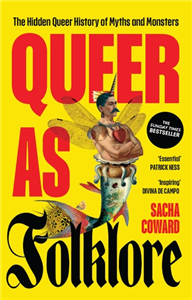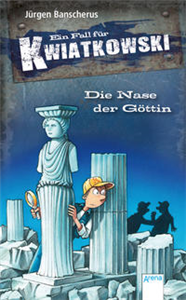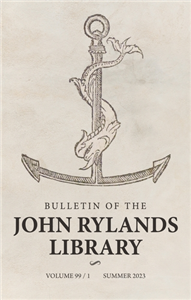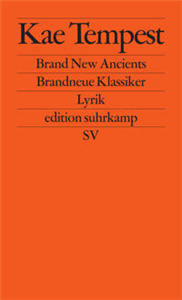Your Search Results
-
Promoted ContentHumanities & Social SciencesJuly 2020
Victorian literary culture and ancient Egypt
by Eleanor Dobson
-
Promoted ContentBusiness, Economics & LawOctober 2020
Design Thinking Navigator
Kartenset zur kreativen Projektarbeit
by Mayer, Lena; Osann, Isabell; Szymanski, Caroline; Taheri, Mana
Design Thinking: Solve problems together, user-centered and iterative, develop innovations and have fun doing so! - Practical cards for innovation project work with change of perspective- Consistently customer-oriented and iterative- Targeted use of the maps in project planning and implementation with Design Thinking- Pragmatic, compact and wonderfully descriptive- Suitable for the most diverse questions or problems- With folding poster for targeted use of maps in project planning and decorative at the workplace- From the authors "Design Thinking Quick Start
-
 Trusted Partner
Trusted Partner
-
 Trusted Partner
Humanities & Social SciencesApril 2023
Trusted Partner
Humanities & Social SciencesApril 2023An archaeology of innovation
Approaching social and technological change in human society
by Catherine J. Frieman
An archaeology of innovation is the first monograph-length investigation of innovation and the innovation process from an archaeological perspective. It interrogates the idea of innovation that permeates our popular media and our political and scientific discourse, setting this against the long-term perspective that only archaeology can offer. Case studies span the entire breadth of human history, from our earliest hominin ancestors to the contemporary world. The book argues that the present narrow focus on pushing the adoption of technical innovations ignores the complex interplay of social, technological and environmental systems that underlies truly innovative societies; the inherent connections between new technologies, technologists and social structure that give them meaning and make them valuable; and the significance and value of conservative social practices that lead to the frequent rejection of innovations.
-
 Trusted Partner
Teaching, Language & ReferenceFebruary 2020
Trusted Partner
Teaching, Language & ReferenceFebruary 2020A writer's guide to Ancient Rome
by Carey Fleiner, Jerome de Groot
-
 Trusted Partner
2020
Trusted Partner
2020Lighthouses
Successful Pharmacologists in the 20th Century
by Ernst Mutschler, Christoph Friedrich
Antibiotics, insulin, cortisone: countless medicines, which are now lifesavers, were still undiscovered in 1900. Since then, there have been impressive advances in pharmaceutical research. This book is dedicated to all those whom we have to thank for this. While today research is conducted by university teams and working groups in industry, during the early decades of the 20th century it was primarily individual researchers whose ingenuity led to the development of new agents. An introduction to these ‘lighthouses’ in the fields of chemistry, biology, pharmacy and medicine, and to their successes.
-
 Trusted Partner
Geography & the EnvironmentJune 2025
Trusted Partner
Geography & the EnvironmentJune 2025Demystifying informal urban design and planning
Insights from Asia
by Mahyar Arefi
Touting informal settlements or informality in general as illegal, crime-ridden, unsafe, filthy, chaotic, and formal developments as legal, orderly or safe, and so forth has not solved anything and informality as a way of life or an economic reality lingers and grows. Demystifying informal urban design and planning delves deeper into this conundrum and seeks to debunk some common misguided perceptions about it. Borrowing popular philosophical and political analogies from Isaiah Berlin and Gregory Treverton and others, it encourages urban designers and planners to become multitaskers like foxes rather than hedgehogs who can do one thing right. The book ends with some general takeaways on assuming more proactive roles in informal urban design issues and avoiding two potential pitfalls while interacting with them.
-
 Trusted Partner
Humanities & Social SciencesSeptember 2016
Trusted Partner
Humanities & Social SciencesSeptember 2016Mummies, magic and medicine in ancient Egypt
by Campbell Price, Roger Forshaw, Andrew Chamberlain, Paul Nicholson
-
 Trusted Partner
Humanities & Social SciencesJune 2016
Trusted Partner
Humanities & Social SciencesJune 2016Mummies, magic and medicine in ancient Egypt
by Campbell Price, Roger Forshaw, Andrew Chamberlain, Paul Nicholson, Robert Morkot, Joyce Tyldesley
-
 Trusted Partner
Humanities & Social SciencesDecember 2025
Trusted Partner
Humanities & Social SciencesDecember 2025Queer as folklore
The hidden queer history of myths and monsters
by Sacha Coward
A celebration of queer history like you've never seen it before. Queer as folklore travels across centuries and continents to reveal the unsung heroes and villains of storytelling, magic and fantasy. Featuring images from archives, galleries and museums around the world, each chapter investigates the queer history of different mythic and folkloric characters, both old and new. Leaving no headstone unturned, Sacha Coward takes you on a wild ride through the night from ancient Greece to the main stage of RuPaul's Drag Race, visiting cross-dressing pirates, radical fairies and the graves of the 'queerly departed' along the way. Queer communities have often sought refuge in the shadows and created safe spaces in underworlds. But these forgotten narratives tell stories of resilience that deserve to be heard. Join any Pride march and you will see a glorious display of papier-mâché unicorn heads, drag queens in mermaid tails and more fairy wings than you can shake a trident at. These are not just accessories: they are queer symbols with historic roots. To truly understand who queer people are today, we must confront the twisted tales of the past.
-
 Trusted Partner
Children's & YA
Trusted Partner
Children's & YAA Case for Kwiatkowski (28). The Nose of the Goddess
by Jürgen Banscherus/Ralf Butschkow
Private detective Kwiatkowski never fails to solve a case! A trip to Athens? Kwiatkowski can hardly believe his luck when Olga, an old friend, sends him an invitation. But no sooner has he arrived in Greece than he finds himself caught up in a very tricky case: a greenhorn detective named Hercules needs his help to expose the handiwork of two unscrupulous fraudsters. It is a matter of honour that even during his holidays Kwiatkowski must use his superskills. Soon the two detectives are on the move among the ancient temple walls in their search to solve the mystery of the goddess Athene’s nose…
-
 Trusted Partner
Trusted Partner
-
 Trusted Partner
Humanities & Social SciencesJuly 2023
Trusted Partner
Humanities & Social SciencesJuly 2023Bulletin of the John Rylands Library 99/1
The Aldine Edition of the Ancient Greek Epistolographers: Roots and Legacy
by Julene Abad Del Vecchio
This special issue of the Bulletin of the John Rylands Library is devoted to the Aldine edition of the Ancient Greek epistolographers. Published in Venice in 1499 by Aldus Manutius, the Aldine edition was the first printed edition of most of the thirty-six Greek letter collections that it contains. As such, it embodies the intersection between the medieval epistolary anthologies that predated it and the printed editions of Greek epistolographic collections that followed, which were primarily based on its text. In recent decades, the Aldien edition has been the subject of important works, which have sought to analyse its contents and sources. This issue explores the Aldine edition from three perspectives: its relationship to the epistolary collections found in medieval manuscripts, its relationship to the printed editions that followed it and its legacy and value for the modern scholar studying Ancient Greek epistolography.
-
 Trusted Partner
Trusted Partner
-
 Trusted Partner
June 2017
Trusted Partner
June 2017Brand New Ancients / Brandneue Klassiker
Lyrik
by Kae Tempest, Johanna Wange
Englisch und deutsch. Übersetzt von Johanna Wange. Die antiken Götter von heute leben im Südosten Londons. Sie heißen Kevin und Jane, Mary und Brian, Thomas und Clive – zwei Familien in benachbarten Häusern, Eheleute, die einander betrügen, Halbbrüder, die nichts voneinander wissen. Ihre Nöte, Hoffnungen und Enttäuschungen bringt Kate Tempest in ihrem preisgekrönten Langgedicht Brand New Ancients / Brandneue Klassiker zu Gehör. In den kleinen, prekären Leben findet sie die Kraft der alten Mythen wieder. Dem Zynismus und der Gleichgültigkeit der kapitalistischen Gesellschaft setzt sie Humanismus und Einfühlungsvermögen entgegen und die Wucht ihrer Sprache.
-
 Trusted Partner
Humanities & Social SciencesMarch 2021
Trusted Partner
Humanities & Social SciencesMarch 2021An archaeology of innovation
by Catherine J. Frieman, Joshua Pollard
-
 Trusted Partner
Humanities & Social SciencesMay 2017
Trusted Partner
Humanities & Social SciencesMay 2017Inventing the cave man
From Darwin to the Flintstones
by Andrew Horrall, Jeffrey Richards
Fred Flintstone lived in a sunny Stone Age American suburb, but his ancestors were respectable, middle-class Victorians. They were very amused to think that prehistory was an archaic version of their own world because it suggested that British ideals were eternal. In the 1850s, our prehistoric ancestors were portrayed in satirical cartoons, songs, sketches and plays as ape-like, reflecting the threat posed by evolutionary ideas. By the end of the century, recognisably human cave men inhabited a Stone Age version of late-imperial Britain, sending-up its ideals and institutions. Cave men appeared constantly in parades, civic pageants and costume parties. In the early 1900s American cartoonists and early Hollywood stars like Charlie Chaplin and Buster Keaton adopted and reimagined this very British character, cementing it in global popular culture. Cave men are an appealing way to explore and understand Victorian and Edwardian Britain.
-
 Trusted Partner
Modern history to 20th century: c 1700 to c 1900May 2017
Trusted Partner
Modern history to 20th century: c 1700 to c 1900May 2017Inventing the cave man
From Darwin to the Flintstones
by Andrew Horrall. Series edited by Jeffrey Richards
Fred Flintstone lived in a sunny Stone Age American suburb, but his ancestors were respectable, middle-class Victorians. They were very amused to think that prehistory was an archaic version of their own world because it suggested that British ideals were eternal. In the 1850s, our prehistoric ancestors were portrayed in satirical cartoons, songs, sketches and plays as ape-like, reflecting the threat posed by evolutionary ideas. By the end of the century, recognisably human cave men inhabited a Stone Age version of late-imperial Britain, sending-up its ideals and institutions. Cave men appeared constantly in parades, civic pageants and costume parties. In the early 1900s American cartoonists and early Hollywood stars like Charlie Chaplin and Buster Keaton adopted and reimagined this very British character, cementing it in global popular culture. Cave men are an appealing way to explore and understand Victorian and Edwardian Britain.
-
 Trusted Partner
Humanities & Social SciencesJune 2009
Trusted Partner
Humanities & Social SciencesJune 2009Design and popular entertainment
by Christopher Breward, Christopher Frayling, Emily King, Bill Sherman
Design and Popular Entertainment offers a selection of nine essays that examine the range of design for popular entertainment, from theatre and film, to television and radio. Investigating entertainment design from the late nineteenth century to the 1960s, the book is divided into two sections. The first addresses the 'hardware' of popular entertainment, in other words the objects through which images, sound and performance are transmitted. The second explores the construction of cinematic and televisual imagery and the design of objects for the screen, the 'software' of entertainment. In so doing it offers important insights into this little explored aspect of design. Topics covered by the collection include the design of theatrical lighting and stage sets, cinema and radio design, the representation of designers within film, and the relationship between design and television. The book's concentration on the 1950s and 1960s reflects the profound changes in modes of entertainment that took place during that period, in particular the spread of television, which not only attracted a huge popular audience but also stimulated experimental designing approaches and thinking. With particular focus on the way that both the objects and the construction of entertainment have altered audience's experience, the essays present a novel approach to the subject. This book will be of particular interest to students and teachers working in design and cultural history as well as film and theatre studies. ;
-
 Trusted Partner
Humanities & Social SciencesFebruary 2007
Trusted Partner
Humanities & Social SciencesFebruary 2007Design and the modern magazine
by Christopher Breward, Jeremy Aynsley, Kate Forde, Bill Sherman, Martin Hargreaves
Design and the Modern Magazine provides a thematically arranged set of essays that examine the changing character of the magazine as an important aspect of cultural life from the late nineteenth century until today. In doing so it offers some of the first detailed case-studies of individual titles and analyses how design decisions are made alongside editorial, commercial and technical considerations. The book suggests ways to understand the magazine as a designed object. Among the more significant titles considered are Woman's Home Companion, Design, Woman and Vogue. While largely drawing from British and American sources, the book also covers the impact of modern design ideas from Europe on such publications. The essays present new and original scholarship on the subject and will be of use to students and teachers working on a wide range of art and design history, and literature studies courses. ;



























